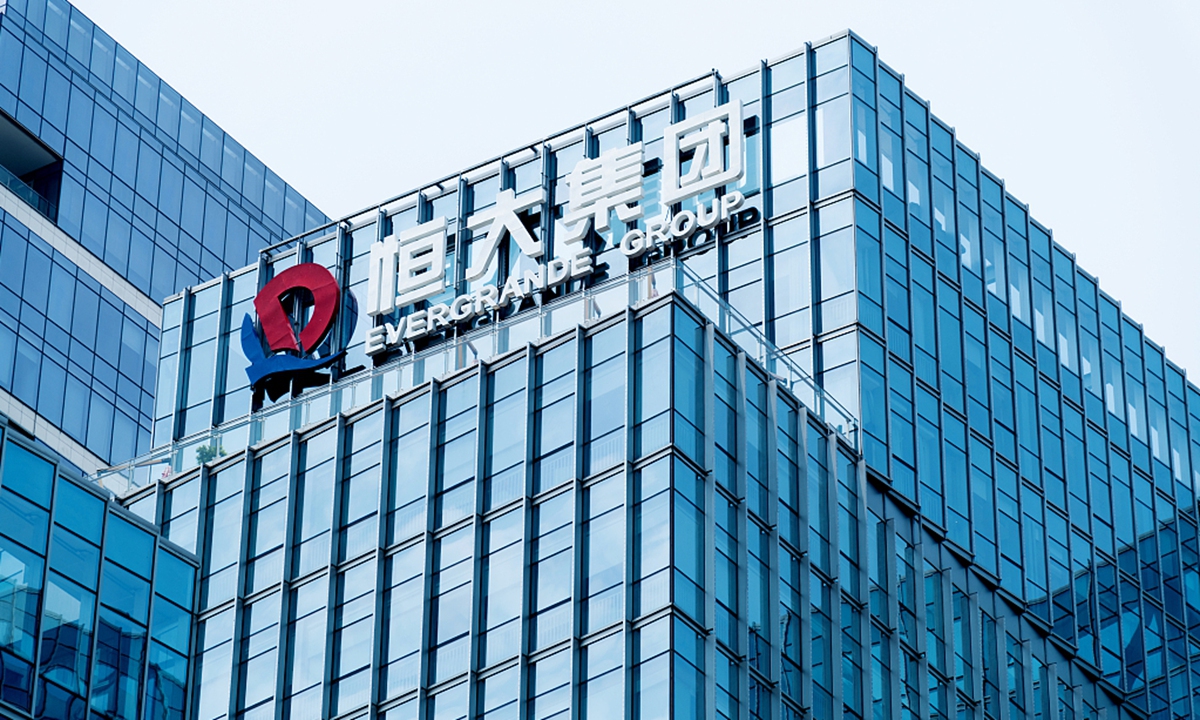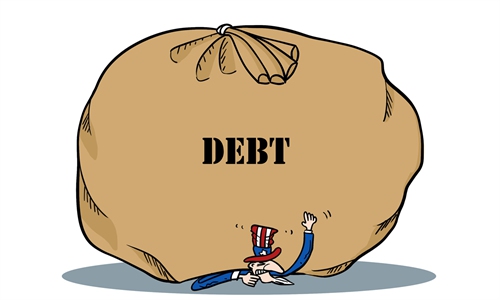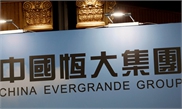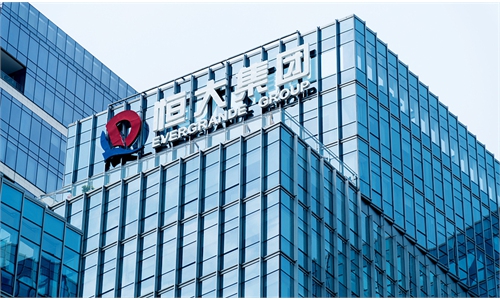
Evergrande Group Photo: CFP
As the Chinese society is watching whether Chinese real estate giant Evergrande can weather a liquidity crisis through an asset selling spree, some from the West have already gone too far in hyperventilating about its spillover effects on the world economy. But that won't disrupt the pace at which China addresses some of its potential systemic risks.
The latest example of such rhetoric is remarks from US Secretary of State Antony Blinken, who urged China to act "responsibly" when it comes to addressing the potential impacts of Evergrande's liquidity crisis, Bloomberg reported on Wednesday. "China has to make sovereign economic decisions for itself, but we also know that what China does economically is going to have profound ramifications, profound effects, on literally the entire world because all of our economies are so intertwined," Blinken said.
It is true that many Western media outlets have likened the Evergrande crisis to the 2008 collapse of Lehman Brothers in the US, hyping up the question as to whether the Chinese economy is facing its Lehman moment, which is nothing but misleading. While Evergrande is the most indebted real estate company in China with over $300 billion in liabilities, it is still too early to say it will lead to a moment akin to the failure of Lehman Brothers.
If anything, Evergrande is far from insolvent, a decisive difference from Lehman Brothers. As of June 30, Evergrande's total liabilities had swelled to 1.97 trillion yuan ($305 billion) with 2.38 trillion yuan in total assets, per its interim financial disclosure at the end of August.
Of course, Evergrande's crisis is still playing out and its recent failure to pay overdue bills is a troubling sign for the entire property industry, which may spread contagion risks to upstream and downstream sectors given the economic significance of the real estate industry to the domestic economy. But Evergrande's fate is still uncertain, as it has been on a selling spree to raise funds to help resolve its serious liquidity crisis.
It is also clear that China will not change its own pace of economic adjustment for the sake of external pressure or placating the market. Evergrande's current challenges were derived from its aggressive expansion on the back of high leverage and credit bubbles, a shared phenomenon among Chinese developers. In order to curb the reckless borrowing, Chinese authorities last year issued the "three red lines" under which developers are required to ensure a liability-to-asset ratio of under 70 percent, a net gearing ratio of less than 100 percent and a cash-to-short-term debt ratio of at least one or they like Evergrande will be restricted from borrowing more money.
The fact that the authorities adhere to the "three red lines" even after the Evergrande crisis and despite signs of softening throughout the real estate sector as a whole is an indication that China has its own set of priorities and maintains the focus on deflating the real estate bubble and reducing risks.
External pressure will not force China to change its pace of doing things. This is because only by doing our things well can China increase its initiative in foreign relations, and the point has been repeatedly proved in the trade frictions between China and the US in the past.




